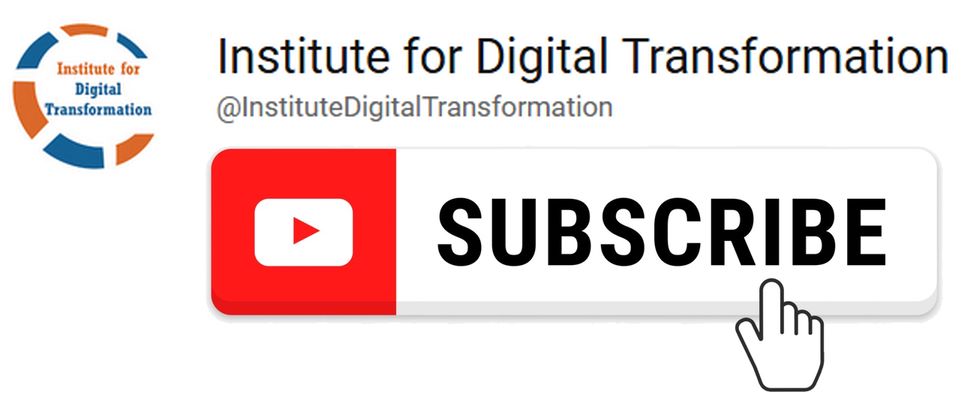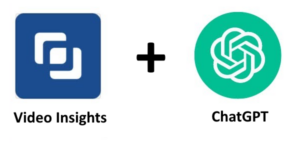Our latest episode of Leading in the Digital Era had four humans discussing the challenges of leadership in the Age of AI. So we thought it was only fair to provide equal time to Artificial Intelligence.
After watching the video, see what ChatGPT with the Video Insights plugin thinks about their conversation.
Don't forget to subscribe to our YouTube channel.

The video titled “Leadership in the Age of AI & the Evolving Workplace”, is a profound exploration of the ever-evolving realm of artificial intelligence (AI). It delves deep into the transformative power of AI, as it reshapes leadership and redefines the very fabric of tomorrow’s workplaces. The video goes beyond viewing AI as a mere tool that alters hardware and software; rather, it delves into its profound implications for human relationships, organizational culture, and the very essence of work.
The video features discussions with top executives, including Anna Ransley, an experienced executive with a background as a chief digital officer and information officer, and Rita J. King, an expert in work culture who advises executives across industries. The video also mentions a long-time friend named Ramesh Sethi and his substantial contributions to prominent companies. It discusses Ramesh’s expertise in managing large enterprise technology portfolios and his thought leadership in the application of AI and ML.
Here are my insights:
- The panelists discuss the importance of adding EQ (Emotional Intelligence) to the information that AI provides us. They emphasize the need to understand and interpret the data that AI provides through a human lens.
- The panelists discuss the importance of continuous learning and upskilling in the age of AI. They mention the concept of the “half-life of skills,” which is about two and a half years, meaning we need to continuously upskill, learn, and unlearn new skills all the time.
- The panelists talk about the importance of agility and adaptability in the workforce. They mention that the skills we have right now may not be relevant in three to four years, and we should be open-minded and ready to adapt to new technologies and trends.
- The panelists discuss the importance of on-the-job learning. They mention the 70-20-10 rule, where 70% of learning happens on the job, 20% through peer groups, and only 10% through formal learning like courses.
- The panelists discuss the importance of hiring creative generalists who can be utility players in a process rather than sticking to a specific job description. They believe this change would make a tremendous difference in the workforce.
- The panelists discuss the need to slow down in the face of constant urgency. They believe that this constant sense of urgency is costing more in the long run than it’s gaining in the short term.
- The panelists discuss the importance of explaining AI in plain English to an average user or business person. They believe that if we can’t explain how AI works, we won’t be able to use it in many industries and use cases.
- The panelists discuss the importance of preparing the workforce for jobs that may not exist today. They believe that as we automate more and more menial tasks, we need to think about how we educate, onboard, and train new generations of employees.
- The panelists discuss the importance of fostering critical thinking in employees. They believe that as we bring in new employees, we need to prepare them for the future and make sure they have the foundational knowledge to do what they need to do.
- The panelists discuss the importance of slowing down and bringing rational policies into the process of AI as applied imagination. They believe this includes hiring creative generalists and getting real about humanity and soft skills.
These insights provide a comprehensive understanding of the evolving workplace in the age of AI, emphasizing the importance of continuous learning, adaptability, on-the-job learning, hiring creative generalists, slowing down, explaining AI, preparing the workforce for future jobs, fostering critical thinking, and bringing rational policies into the process of AI.
The video concludes by emphasizing the need for clear communication and adaptability in order to achieve exponential growth. It discusses the importance of maintaining certain attributes from the past while moving forward. It suggests that passion, drive, and a creative imagination are essential for progress.
About the Author:

VideoInsights.io is a sophisticated real-time video content analysis platform.
OpenAI is an AI research and deployment company. Our mission is to ensure that artificial general intelligence benefits all of humanity.
Tag/s:Artificial IntelligenceLeading in the Digital EraVideo





